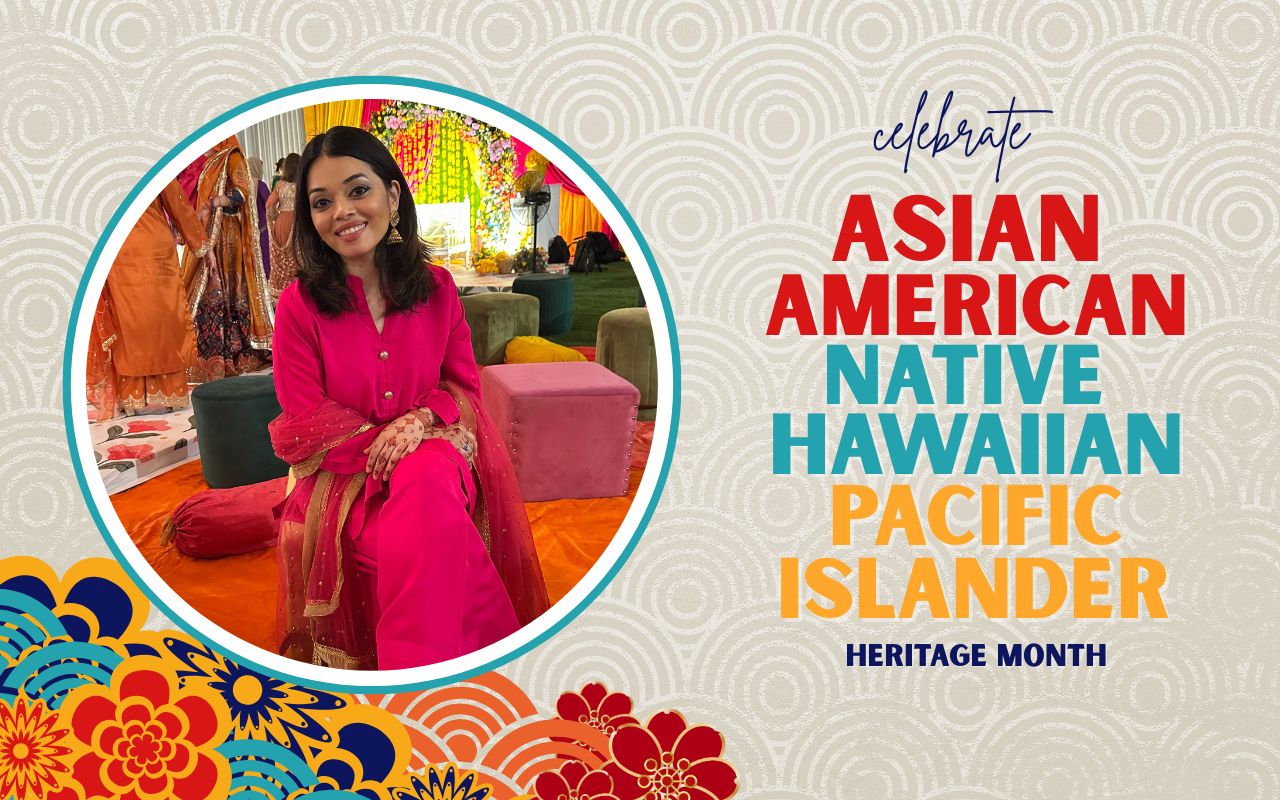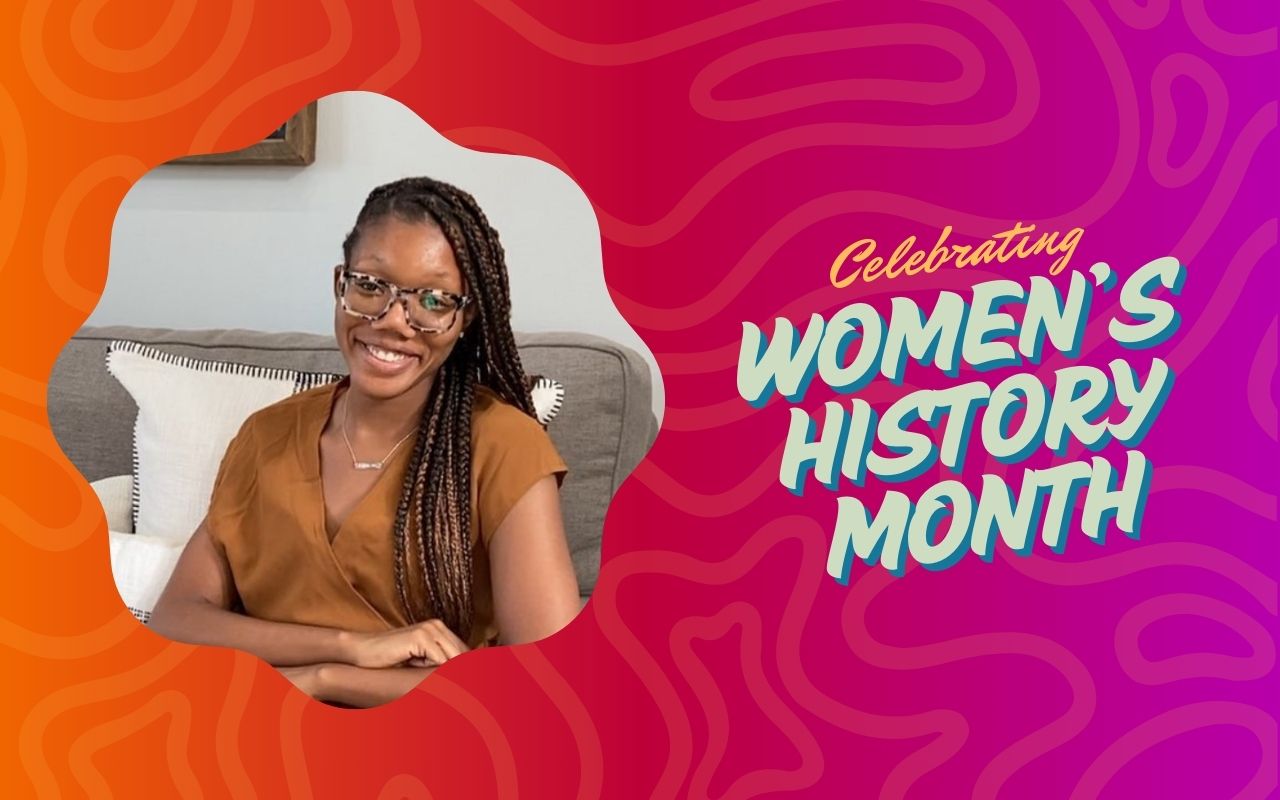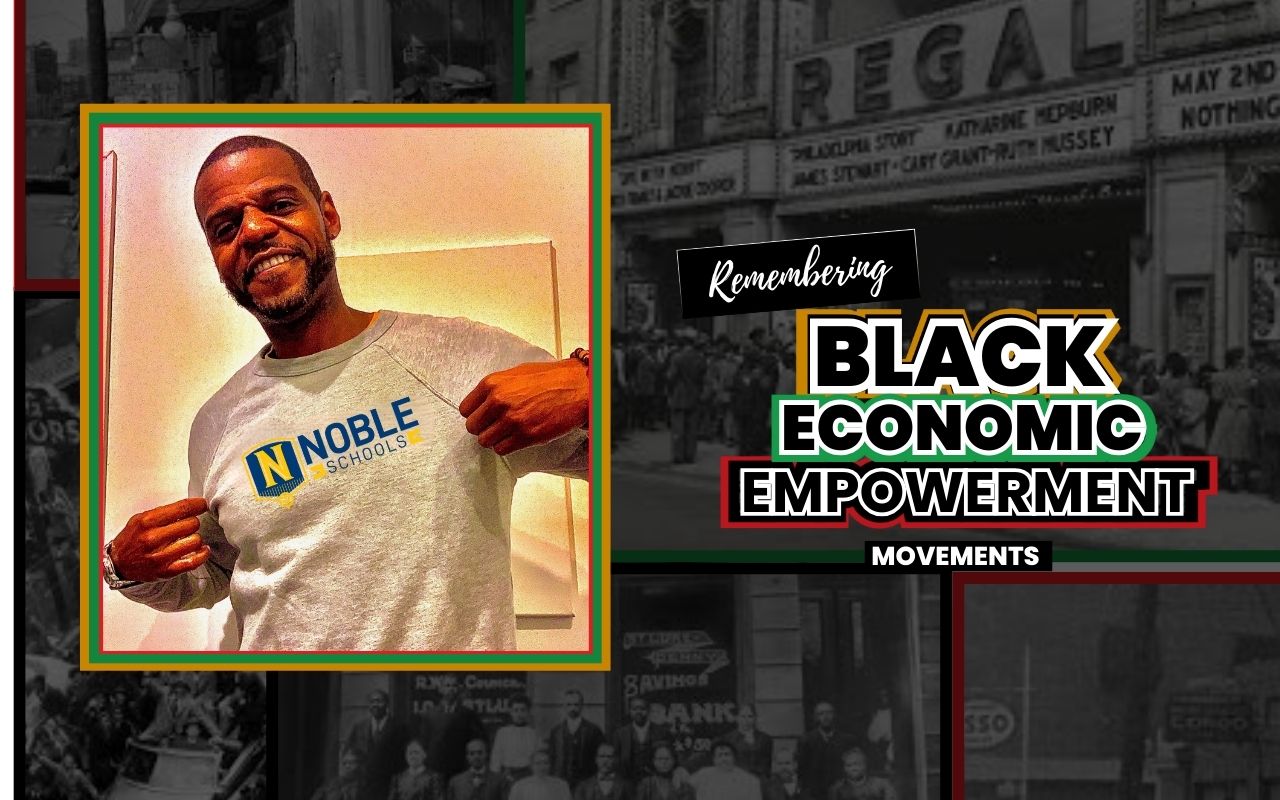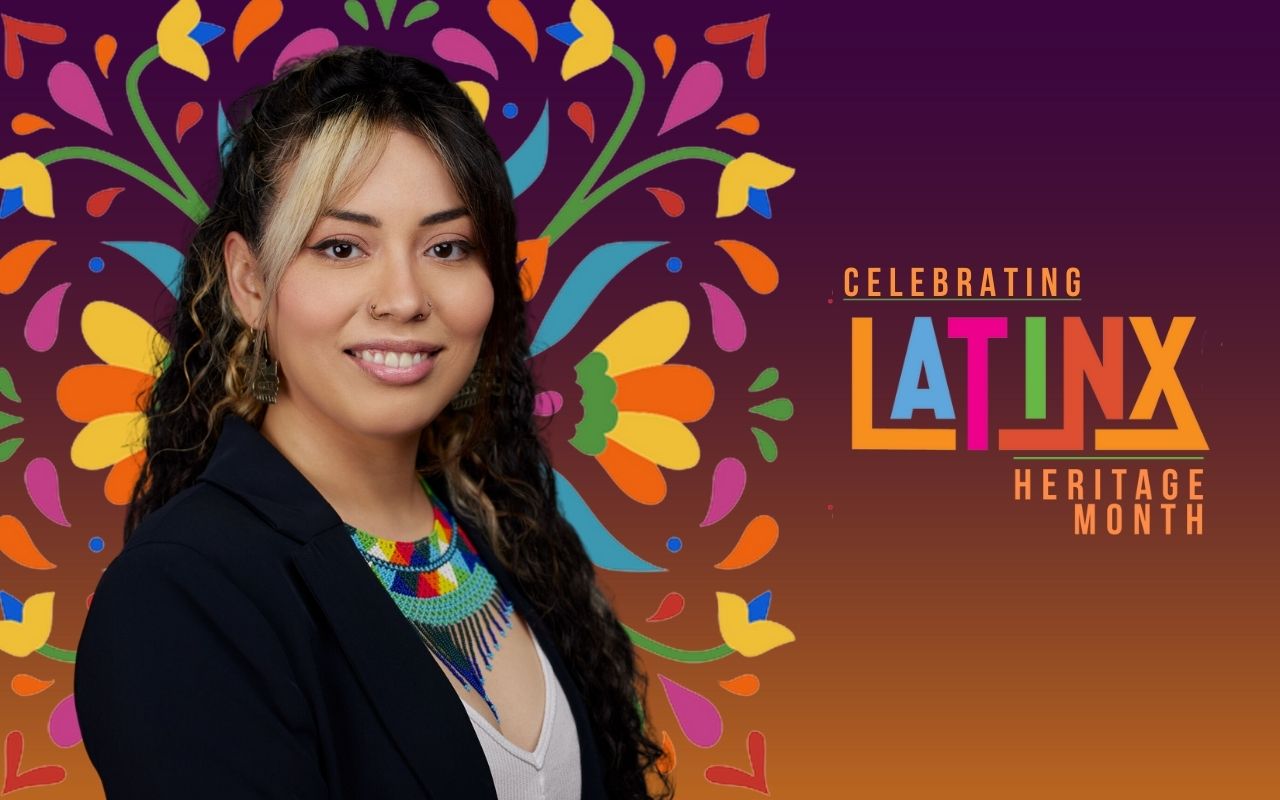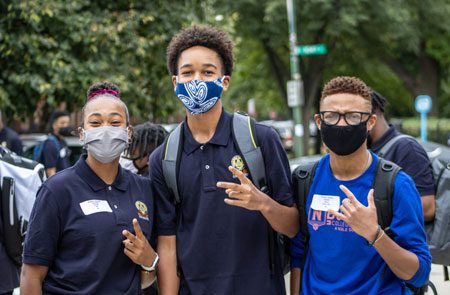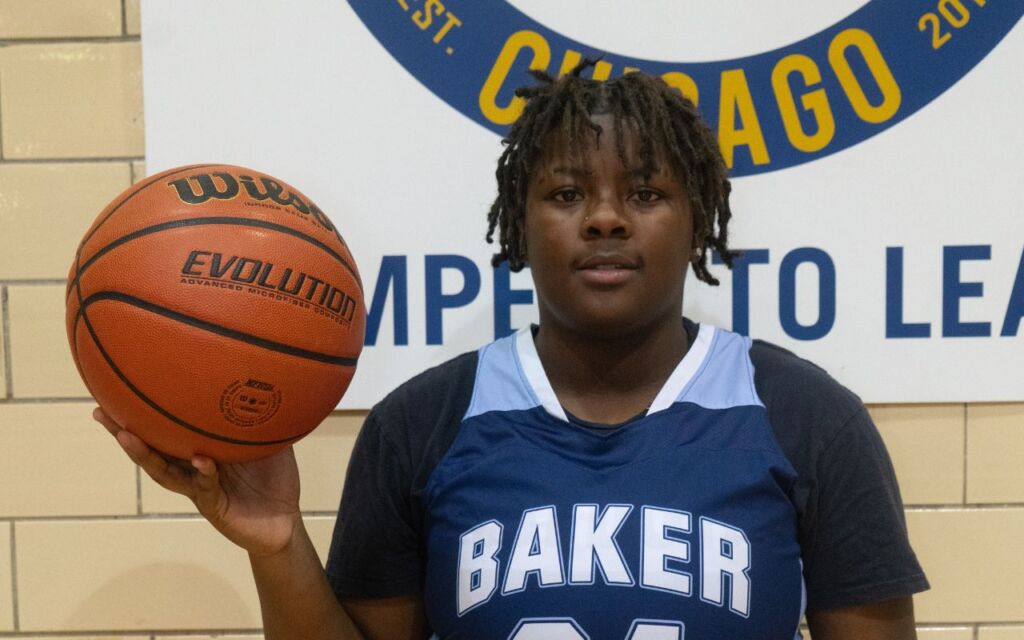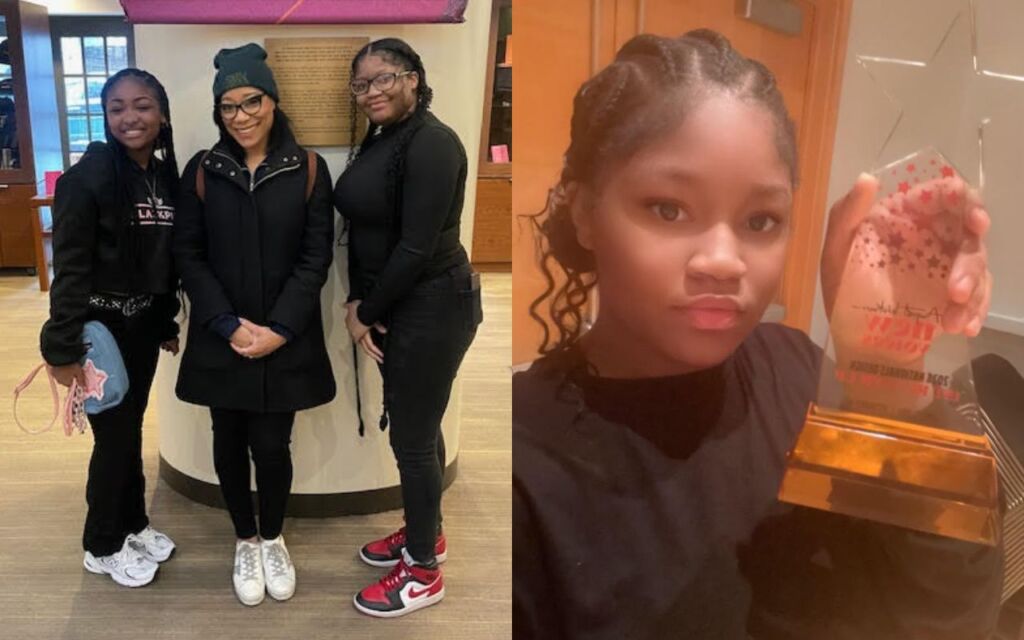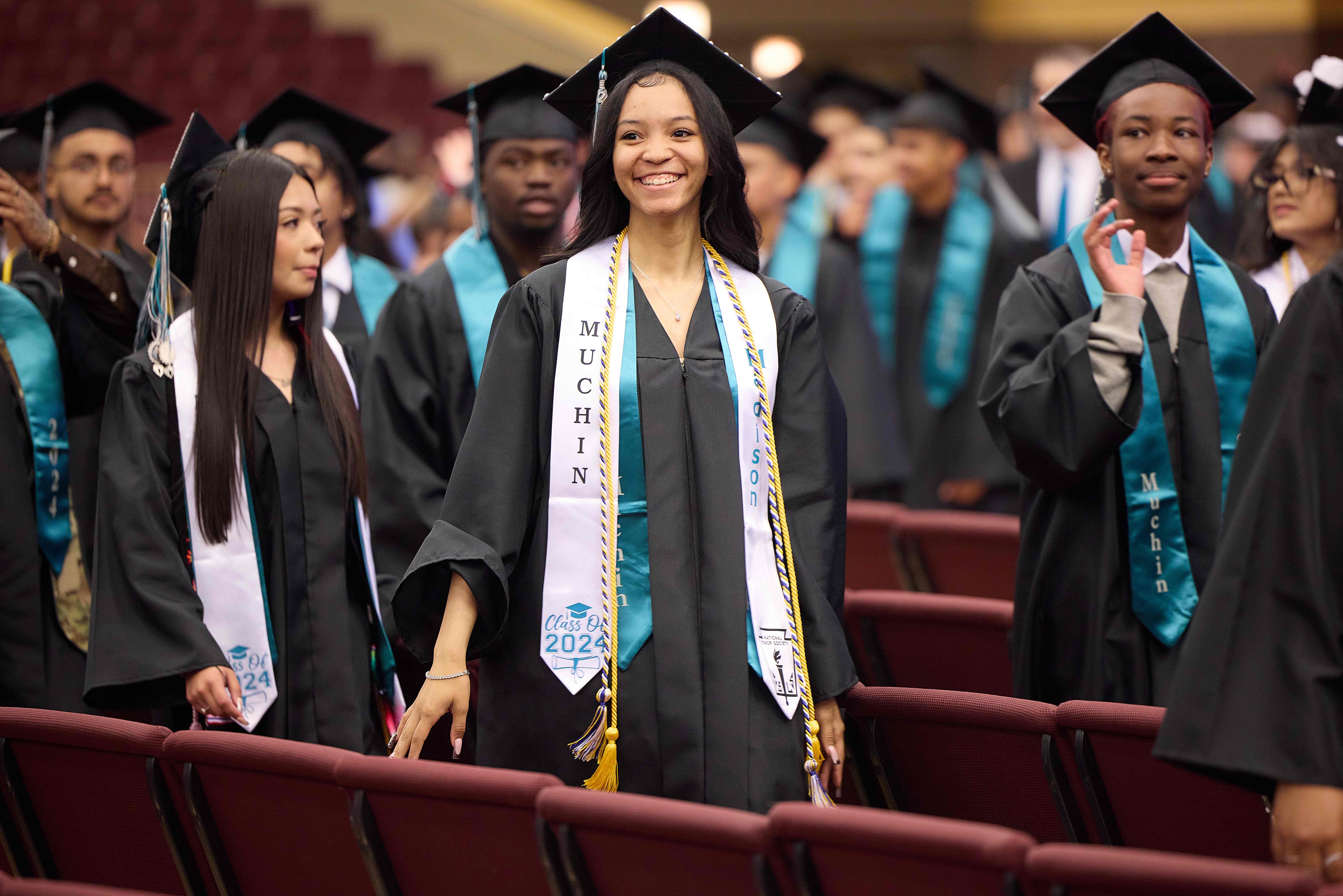
BY EMMANUEL JACKSON | he/him | College Counselor | Muchin College Prep
Usually, at this time of year, my 12th-grade students are excitedly choosing what college to attend and taking the next steps required to enroll. But this school year has not been normal.
Due to major complications with the rollout of a new, modernized version of the Free Application for Federal Student Aid (FAFSA), some of my students still don’t have the financial aid letters needed to make an informed decision. Others are only now getting their letters and scrambling to make a choice quickly.
This year, the government sought to modernize the FAFSA to make the process easier for families, but completing this new FAFSA has been anything but easy. The poor rollout was plagued with various issues and glitches that have led to major delays—leaving students and families in the lurch, especially parents who don’t have social security numbers.
These issues have had a huge impact not only on my school but across the country. Across the country, FAFSA submissions are also substantially lower from this time last year. This will inevitably affect enrollment numbers nationwide. The percentage of families at my school, Muchin College Prep, who have completed the FAFSA this year is way down from last year—by about 6%. The ramifications of families not being able to access this form may also have ripple effects for years to come.
As a college counselor, it has been an uphill battle to find answers and solutions for my students and their families as FAFSA issues kept cropping up. Usually, by now, I would have sat down with all of my students and their families to discuss the costs of college and help them make a final decision. But with the delay of award letters, I haven’t been able to do that. It has been heartbreaking to watch my students feel demoralized and hopeless as they couldn’t finalize their college decisions by May 1, National College Decision Day, like so many of their peers and siblings before them.
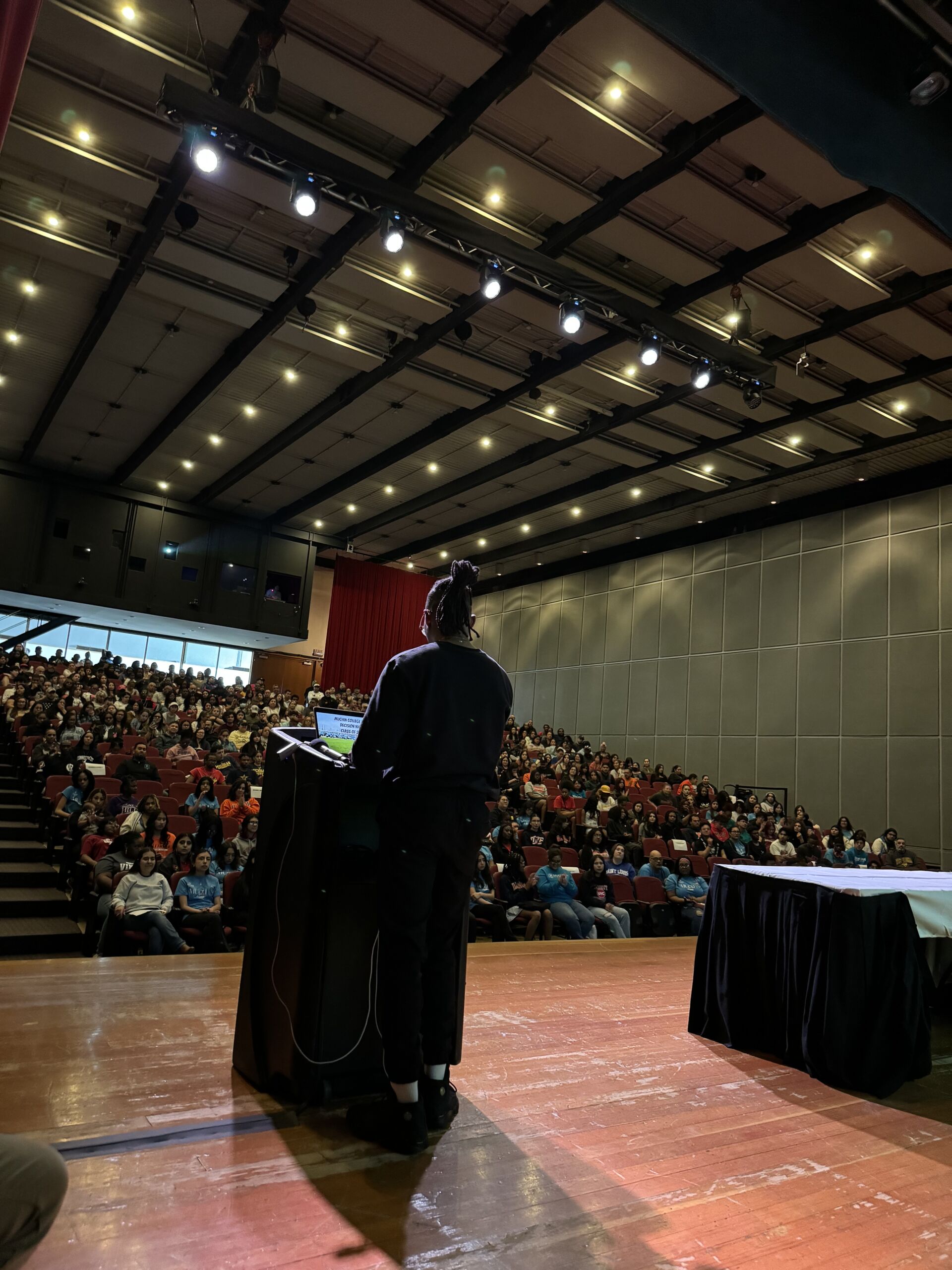
Emmanuel Jackson speaking to the whole Muchin College Prep Class of 2024 at their college decision night.
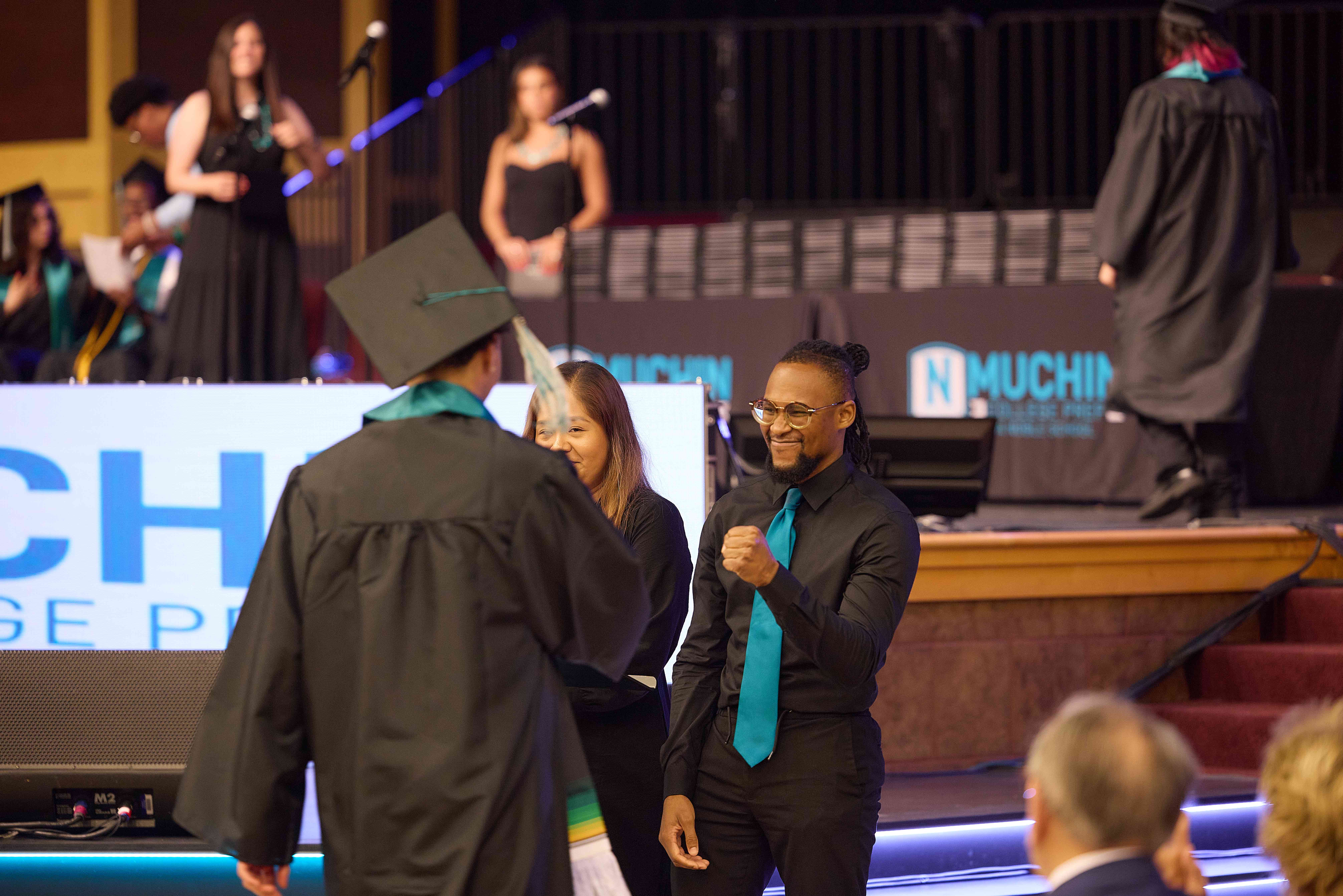
Jackson fist bumps a Class of 2024 graduate as he walks across the stage.
Despite the challenges we’ve faced this year, our college team has done everything in our power to set our students up for success. We’ve helped them better understand award letters by showing them how to calculate their out-of-pocket costs. We’ve emphasized the importance of reaching out for help, particularly in case they don’t receive their award letters in time for graduation. We’ve also been proactive in making sure our students whose parents don’t have SSNs are equipped with the necessary paperwork to submit the FAFSA. Moreover, we’ve provided our students with solace as we all navigated this atypical year together.
The good news is that FAFSA applications have started to be processed over the last few weeks, and award letters have started going out. Furthermore, students whose parents do not have SSNs have finally been able to create the IDs needed to complete the FAFSA and have also gotten their applications finalized and award letters received. Fortunately, many colleges pushed their enrollment deadlines back to June 1st or later in response to the FAFSA challenges this year. This additional time to make a final decision has been pivotal in giving both counselors and families more leeway to solidify college options for next year, but the window to do this is closing by the day.
(If you still haven’t received your award letter by now, I strongly encourage you to contact the college(s) to request an extension.)
While we wait for colleges to send out these letters, here are a few steps students and their families can take to prepare themselves:
For those who have already submitted the FAFSA form
- Log back into your FAFSA to double-check that there aren’t any corrections that need to be made (i.e. missing a signature) and that every school your child has been accepted into is on their FAFSA. Previously, students could only add 10 schools to their FAFSA, but now they can add up to 20 schools.
- Contact your student’s high school counselor if you have any questions or concerns.
- Research the enrollment deadlines for the schools you are seriously considering. This is important so you know when you need to accept your offer from the college.
- If the school your child attends has alumni or post-secondary counselors, reach out to them to see if they can provide any guidance.
- If your student is already in college, they should be consistently reaching out to their school financial aid office for updates on when they can expect to receive their award letter.
For those who have not submitted the FAFSA form (about 7% of Noble’s senior class right now)
- Submit this as soon as possible and check back regularly to see if the form has been processed.
- If you need help completing the form, contact your student’s high school counseling office. Once the form has been processed, your student should contact the colleges they are interested in attending to inquire about the estimated time they can expect to receive their award letter.
- Ask the colleges your student is interested in if you can receive an extension. If granted, please get this information in writing via email from the admissions or financial aid officer.
For parents who do not have a Social Security number and who have not had success with creating an FSA ID
- The Department of Education has announced changes to its systems to allow applicants and contributors without a Social Security number (SSN) to immediately access the online 2024-25 FAFSA form after creating a StudentAid.gov account.
- Students and families who fall into this category should complete the FAFSA as soon as possible. Depending on the school, they should hopefully receive award letters within a week or two.
- See if the colleges your student is considering have enrollment fees. If there aren’t any fees, it might be a good idea to accept the offer of enrollment in order to secure your spot for the upcoming school year. Doing this can buy you some time while you wait for the award letter. However, if you do this, please be sure to unenroll from any college your student chooses not to attend. This can be done by simply contacting the admissions office.
If you have already received an award letter and are unsure what the next steps are to enroll in college, contact your high school counseling office.
Remember, FAFSA must be completed every year your child is at college in order for them to be eligible for financial aid. Thankfully, the FAFSA is expected to open on October 1st, 2024, which will give families more time to renew their forms, make any necessary corrections, and receive financial aid award letters well before May 1 next year.
If you have any questions or concerns, please reach out to your school’s counseling office. We are more than happy to help.

